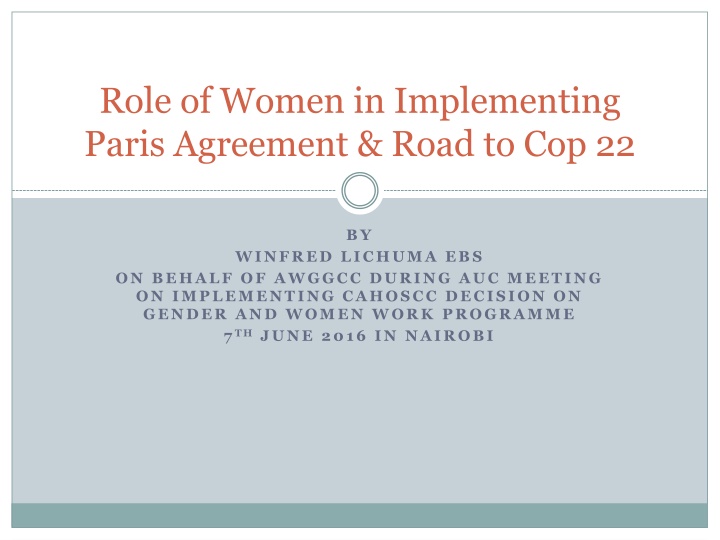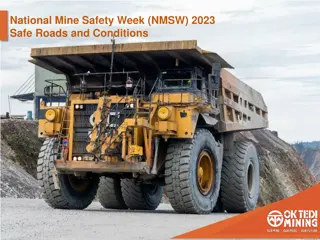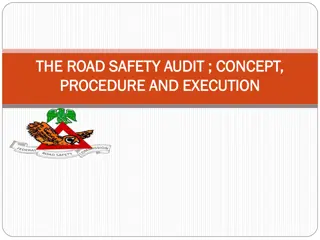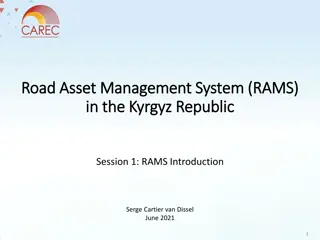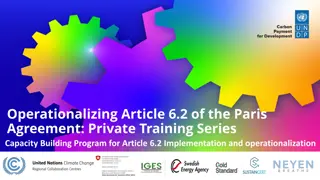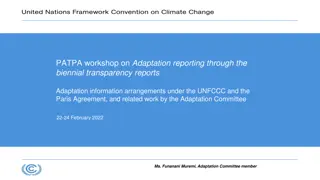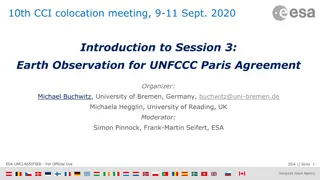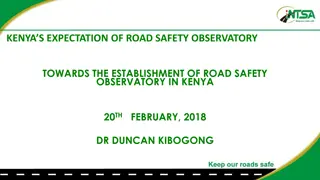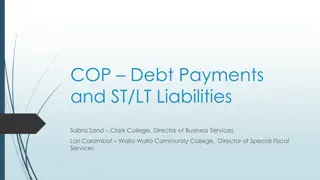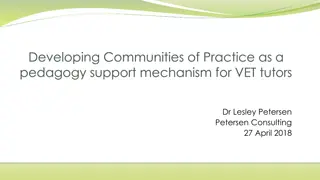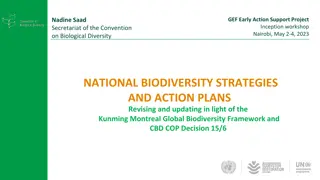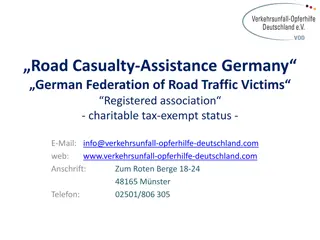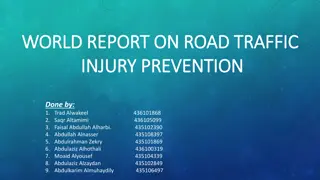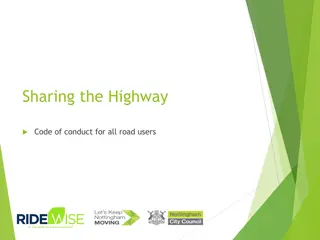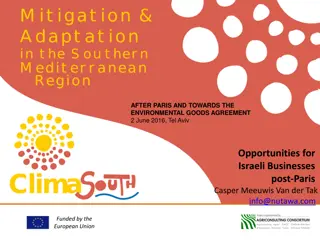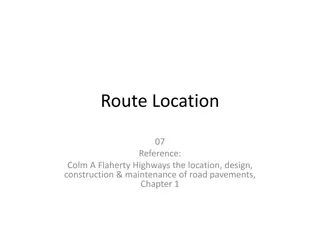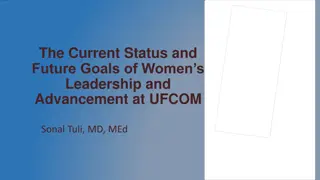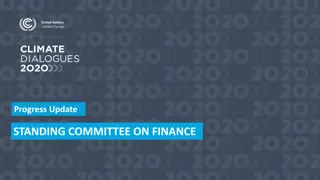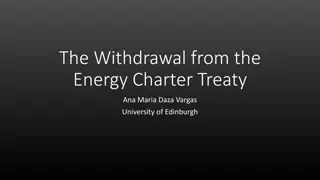Role of Women in Implementing Paris Agreement & Road to COP 22
The world needs transformation for sustainability and equity. Women play a crucial role in addressing climate change impacts due to their vulnerability. They face gender inequalities and limited resources but are powerful agents of change to scale up climate action. The UNFCCC has recognized the importance of gender balance in climate change discussions and policies.
Download Presentation

Please find below an Image/Link to download the presentation.
The content on the website is provided AS IS for your information and personal use only. It may not be sold, licensed, or shared on other websites without obtaining consent from the author.If you encounter any issues during the download, it is possible that the publisher has removed the file from their server.
You are allowed to download the files provided on this website for personal or commercial use, subject to the condition that they are used lawfully. All files are the property of their respective owners.
The content on the website is provided AS IS for your information and personal use only. It may not be sold, licensed, or shared on other websites without obtaining consent from the author.
E N D
Presentation Transcript
Role of Women in Implementing Paris Agreement & Road to Cop 22 BY WINFRED LICHUMA EBS ON BEHALF OF AWGGCC DURING AUC MEETING ON IMPLEMENTING CAHOSCC DECISION ON GENDER AND WOMEN WORK PROGRAMME 7THJUNE 2016 IN NAIROBI
Background The world today requires transformation in order to be on course for a truly sustainable and equitable for all. The international community faces a great challenge in stabilizing the climate. We need zero carbon emissions by 2050 in order to have best possible chance of keeping warming below 2 degrees Celsius above pre industrial level. Yet there is a gap in commitments made by countries in their INDCs to curb climate altering green house gasses
Women and Climate Change Climate change has serious consequences on human ecosystem, human beings & their well being . The vulnerability of women and children to climate change is now well defined. As glaciers melt and sea levels rise and the world experiences droughts, floods, storms etc, the access to food, water sanitation, housing, health stand threatened with a gendered impact.
Women and Climate Change The situation is particularly acute for people living in vulnerable situations owing to geography, gender, age, race, poverty, disability or social status. It is an injustice that the people who have contributed least to the causes of the problem suffer the worst impacts of climate change.
Two Key Messages Women and girls are differently impacted by Climate change( Existing gender inequalities, limited access to natural recourses and productive assets, lack of knowledge and absence at decision making tables) constrain women and girls ability to cope with climate change. Disproportionately burden of domestic care, exposure to Gender based violence, barriers to labour market are exacerbated by climate change hazards. Women and girls are powerful agents of change to scale up climate action. For example in Africa women are primary house hold energy managers and can accelerate transition to sustainable energy, addressing gender gap in agriculture and resilience to risks in rebuilding communities
Gender and UNFCCC Issue of gender first raised in the UNFCCC intergovernmental process in 2001-Decision 36/CP.7-Increasing number of women delegates and bodies in convention and Kyoto protocol Eleven years later CP 18, Doha Miracle-Decision 23/CP.18 secured a permanent agenda to address gender and climate change. Parties were invited to do more to achieve gender balance, Secretariat to report annually of delegation compassions and the bodies. Lima Work Programme on gender-was next significant achievement-Decision 18/CP.20 focused shift from concepts to implementation of gender responsive climate policies including two workshops and a technical paper , need for training and capacity building. More than 50 decision in convention and KP refer to gender, women and or social responsibility
Gender & Paris Agreement The preamble acknowledges that when taking action to address climate change, State Parties should respect, promote their obligations in relation to gender equality and empowerment of women. Art. 7 Parties acknowledge that adaptation actions should follow country-driven, gender responsive, participatory and fully transparent approach . Art. 11-Capapcity building should be guided by lessons learnt ..and should be an effective, interactive process that is participatory, cross cutting and gender responsive.
Gender Achievement to-date Gender mainstreamed in Paris agreement in adaptation, capacity building and preamble. 3 references to decision of the agreement including the enhancement of enabling environments for and addressing barriers to the development and transfer of socially and environmentally sound technologies. Conclusions under SBI/SBSTA programme areas Budget line on gender approved though still very low.
The gaps in Paris Agreement Strong operative language on gender equality , human rights and indigenous people was lost. Gender language related to technology and finance was lost, and was not included in mitigation Lack of progress towards the goals under Lima Work programme on gender No clear safe pathway to achieve the goal of staying below 1.5 degrees Clarity on climate finance flow, where it will come from and what counts
AU, Women and Climate change The African Heads of States and Governments at the Assembly of the Union s 23rdOrdinary session in Malabo in June 2014, through the committee of African Heads of State and Government on Climate Change (CAHOSCC) agreed to develop a COHOSCC Women and Gender Programme on Climate Change to engage women in gender climate related actions. This was further enforced by the 15thsession of the African Ministerial Conference on environment (AMCEN) held in Cairo 2-6 March 2015.
The AMCEN Decision To launch African Women Ministers and Leaders for Environment and mainstream gender into environment in Africa for effective participation of women in development policies, programmes and decision making at all levels. To request the secretariat of the African Ministerial Conference on the Environment, in consultation with the African women ministers and leaders for environment network to develop a gender strategy to be considered at the next regular session of the Conference.
Road to Cop 22 The need to show case gender just climate solutions Need to integrate gender into all climate change process including the INDCs Amplify the African women voice Enhanced collaboration through Strategic partnerships Make submission bt 29thSeptember on elements of Lima Work Programme to operationalize gender responsive climate policy
Conti Working at national levels to translate gender agenda on climate change with the Agenda 2030 on SDGs and integrate gender in Climate change actions. Challenging political realities-making gender responsive actions a reality.
AWGGCC Focus of Cop 22 Work with AGN to develop the Africa submission on Gender and Climate change Support AUC in development the desired gender strategy on climate change Actively participate in 45thSBI agenda on climate change during cop 22 on the Lima work programme on gender renewal.
AWGGCC Actions- Partner Support Develop Clear Strategy on Gender Agenda in Africa. Must have the African Gender Responsive narrative documented. Facilitate capacity building at national levels on gender responsive climate policy by developing tools required to integrate gender Capacity building of AGN (Experts) on gender responsive integration in negotiations
Conti Work with AUC to link and translate gender global resolutions to gender regional commitments and actions. Have presence of the AWGGCC at COP 22 to show case the African gender agenda (In African Pavilion) Seek support on capacity to support some women delegates to attend Cop 22
Request to AUC The AWGGCC has worked closely with the African Scientists of Agriculture and has undertaken in the past two years joint meetings in drafting submissions to UNFCCC. The African Climate Change and Sustainable Development Expert Support Group has been borne (ACCSES). This is a think tank of experts scientists and gender experts that will focus on three areas of expertise in Knowledge.
